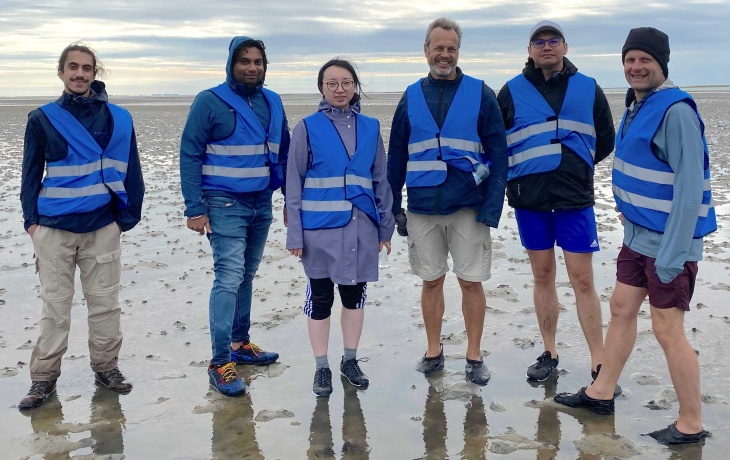Ecosystem Modeling
The transformation of coastal ecosystems is frequently driven by humans in direct and indirect ways.
The “Ecosystem Modeling” department studies new hypotheses on key ecosystem processes related to this transformation and develops concepts for integrative and adaptive modeling. We conduct realistic, coupled physical-biological simulations of coastal ecosystems and develop scenarios for the impacts of climate change as well as for sustainable management of coastal ecosystems.
Our research focal points lie in biological adaptation, on planktonic organisms as the basis of the marine food chain, and on processes on the seabed.

The Ecosystem Modeling group (Photo: Wirtz/Hereon)
News and Press Releases
- A shrimper’s virtual logbook Interactive model simulation in the form of a commented logbook. Follow the virtual boat "Linda" on her journey between Norddeich and Juist. You can download this model and influence the actions. Developed in the MuSSeL project.
- Do oceans absorb more CO2 than expected? New theory on the movement of phytoplankton could imply that oceans absorb more CO2 by 2100 instead of less.
- Greatest Migration on Earth Happens under Darkness Every Day Prof. Kai Wirtz explains vertical migration of marine phytoplankton
- Corona gets us tired Societies act rationally and in solidarity – but also increasingly experience a sense of fatigue, says a study of Helmholtz-Zentrum Hereon
